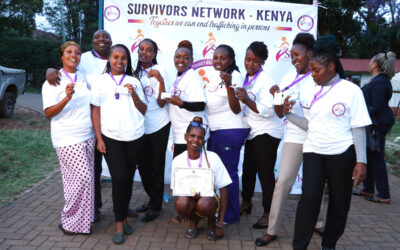Economic and political leaders need to step up their game if global slavery is to be successfully overcome. That’s the message that Free the Slaves Executive Director Maurice Middleberg shared with millions of BBC World Service radio listeners overnight on the network’s financial news program Business Matters. (Listen to podcast here, starting at 27:40.)
“The real challenge in front of the global community is to scale up that which we have already learned about how to fight slavery. And it has to be said that so far the global response is nothing short of abysmal.”
In an extended interview with host Fergus Nicoll, Maurice discussed the economics of confronting slavery. Traffickers reap about $150 billion each year in illicit profits, yet total spending to confront slavery today is only $124 million. Maurice noted that multinational financial institutions can have a dramatic impact on slavery if they choose to more fully exercise their influence.
“With regard to the big development banks, one of the things that we would very much like to see is a much more proactive posture with regard to ensuring that slavery isn’t present in the projects that are financed by the development institutions and that there’s conditionality around the loans so that countries act more assertively to be sure that slavery isn’t present in their economies.”
Integrating anti-trafficking components into health, agriculture and education projects would bring resources to fighting slavery where it is worst.
“The projects that are financed by the development institutions typically reach the poorest of the poor, which is where slavery is to be found,” Maurice said. “They’re almost certainly seeing slavery in those sectors and not recognizing it.”
Maurice also noted that the private sector has a critical role to play.
“I don’t believe that CEOs wake up in the morning and say: ‘Oh, I hope there’s slavery in my supply chain.’ But the incentives have to be there for them to take action. What that means is putting in place laws and systems that create costs and risks for corporations that don’t exercise due diligence.”
The wide-ranging interview explored the Free the Slaves strategy for combating slavery at a community-wide level. The BBC also played interview excerpts of FTS country directors in Nepal, India, Ghana and Congo, from our signature video What Does Slavery Look Like Today.
Our thanks to the BBC for helping to educate its worldwide audience on key economic aspects of overcoming slavery!



